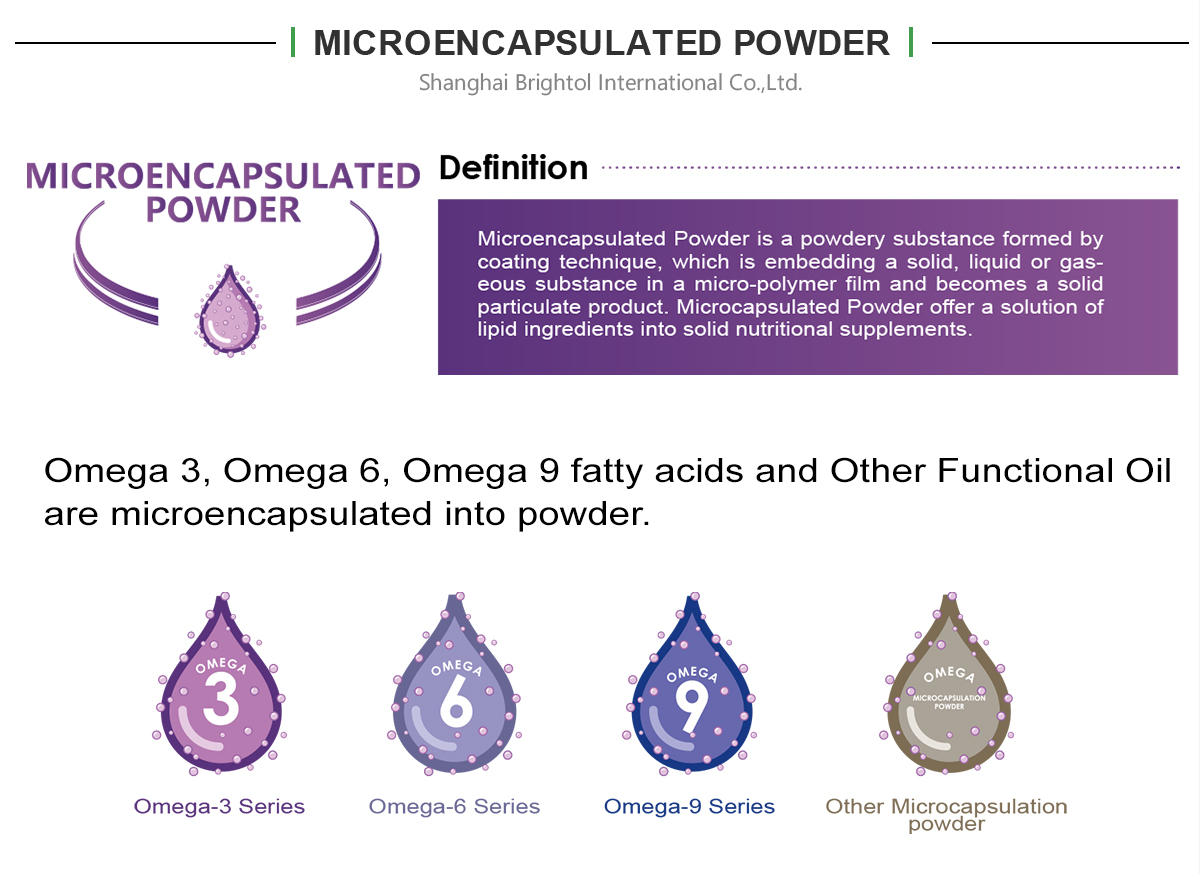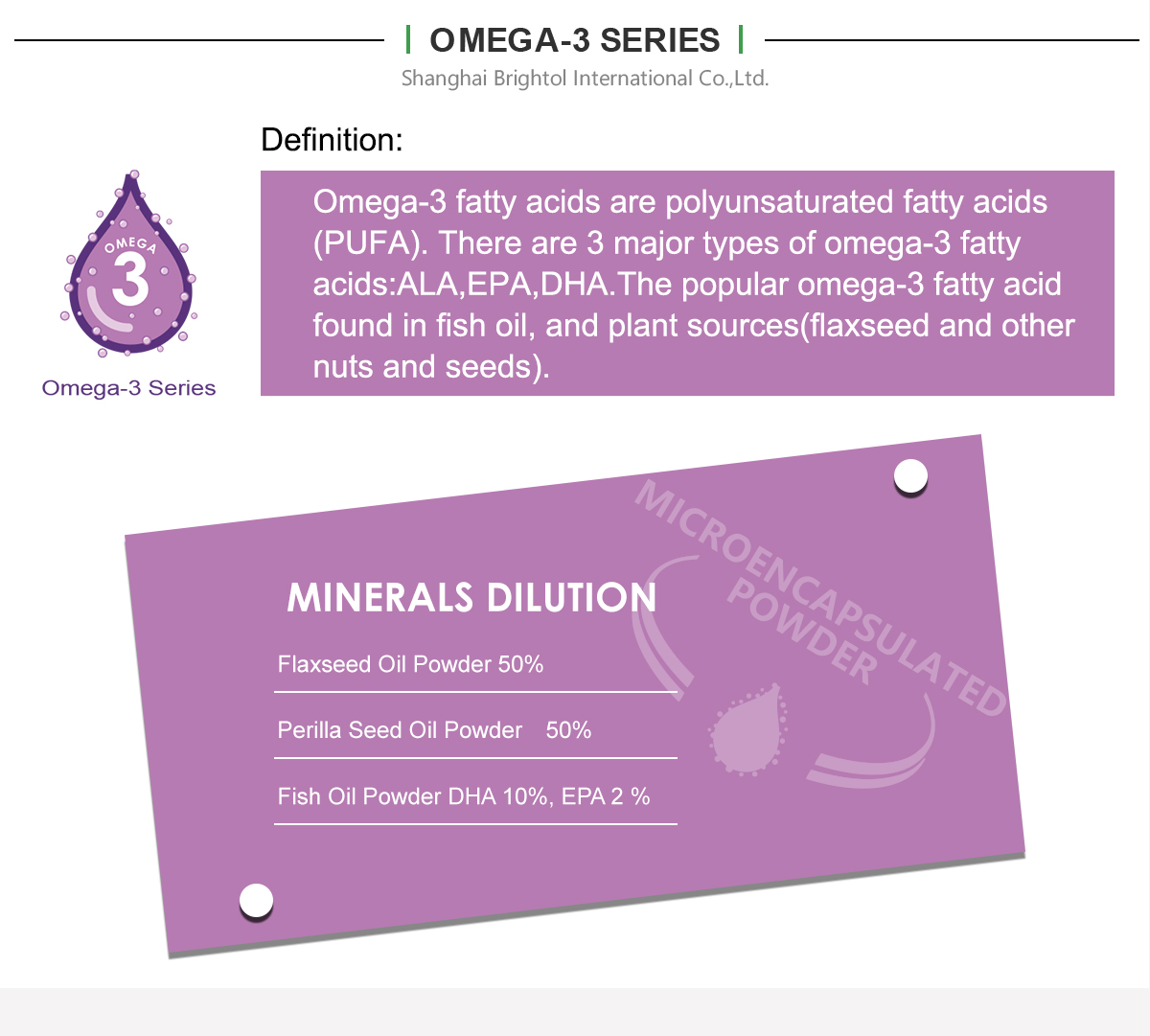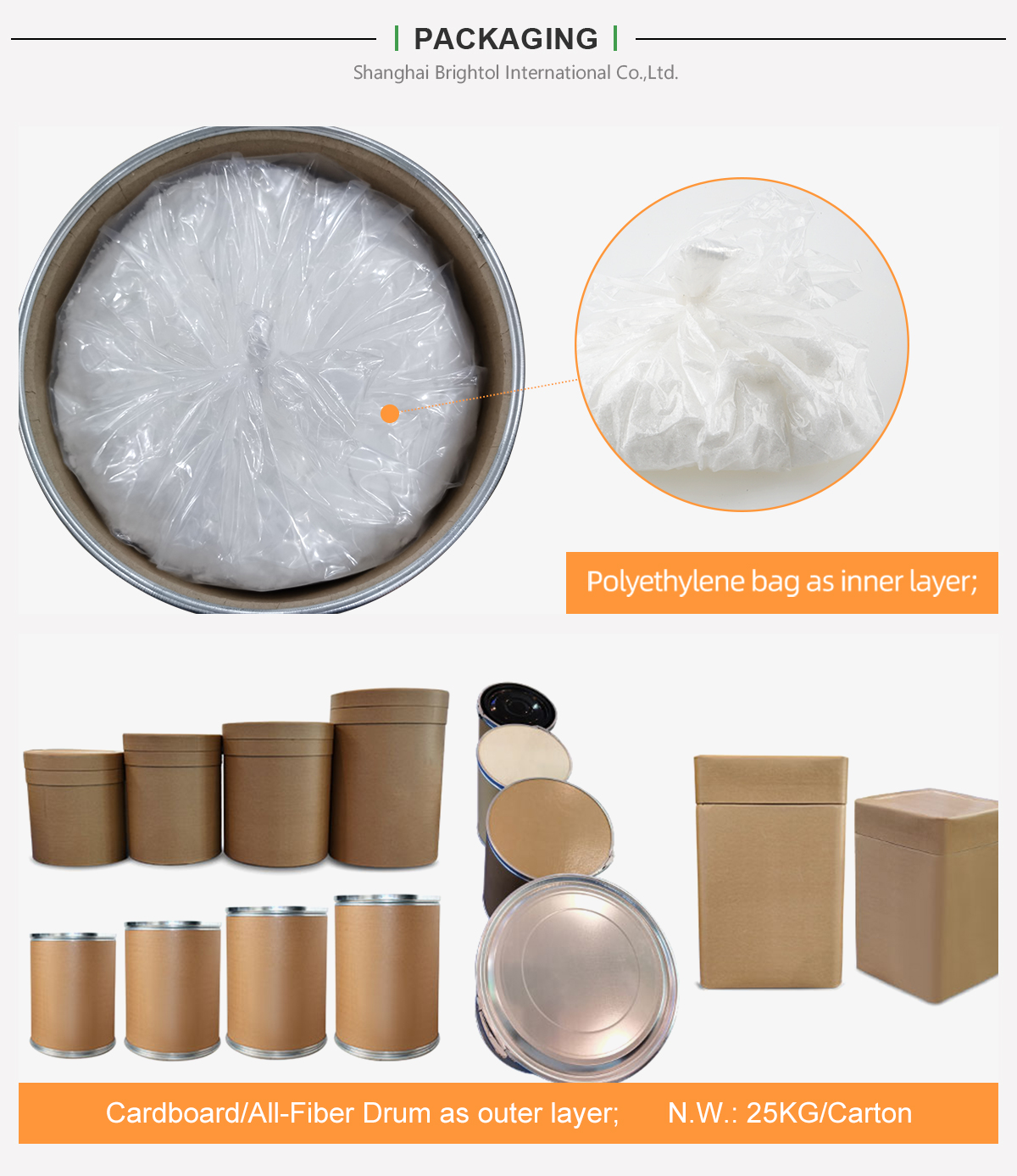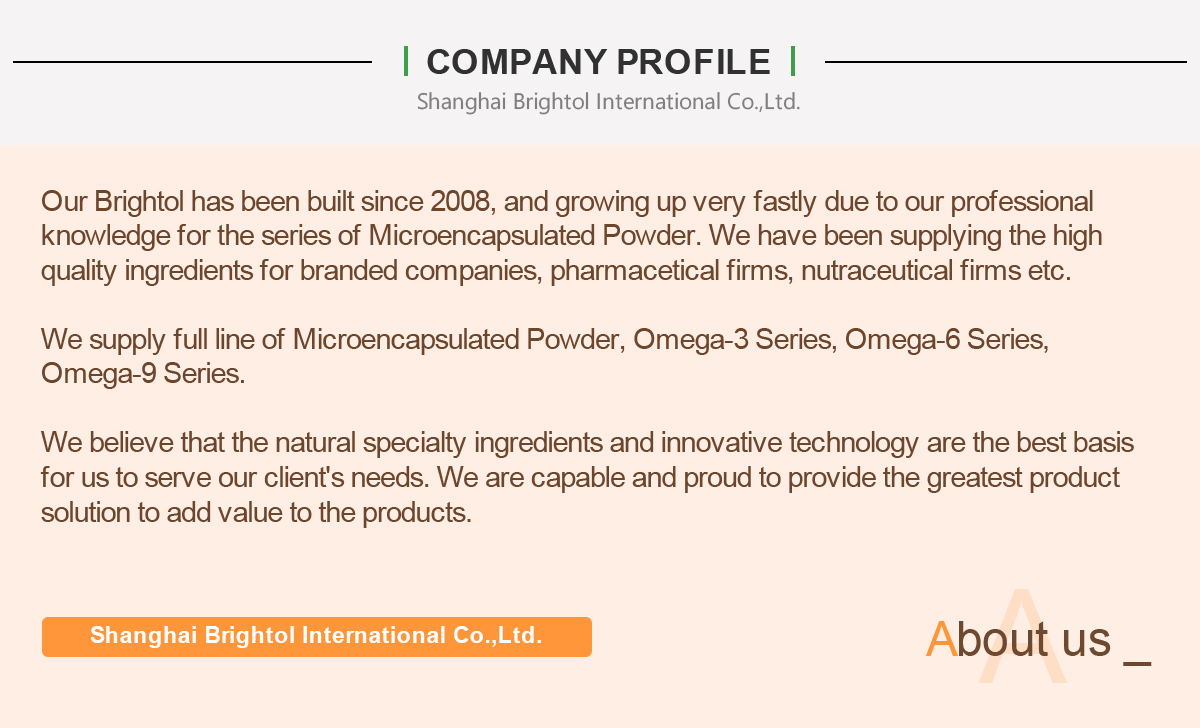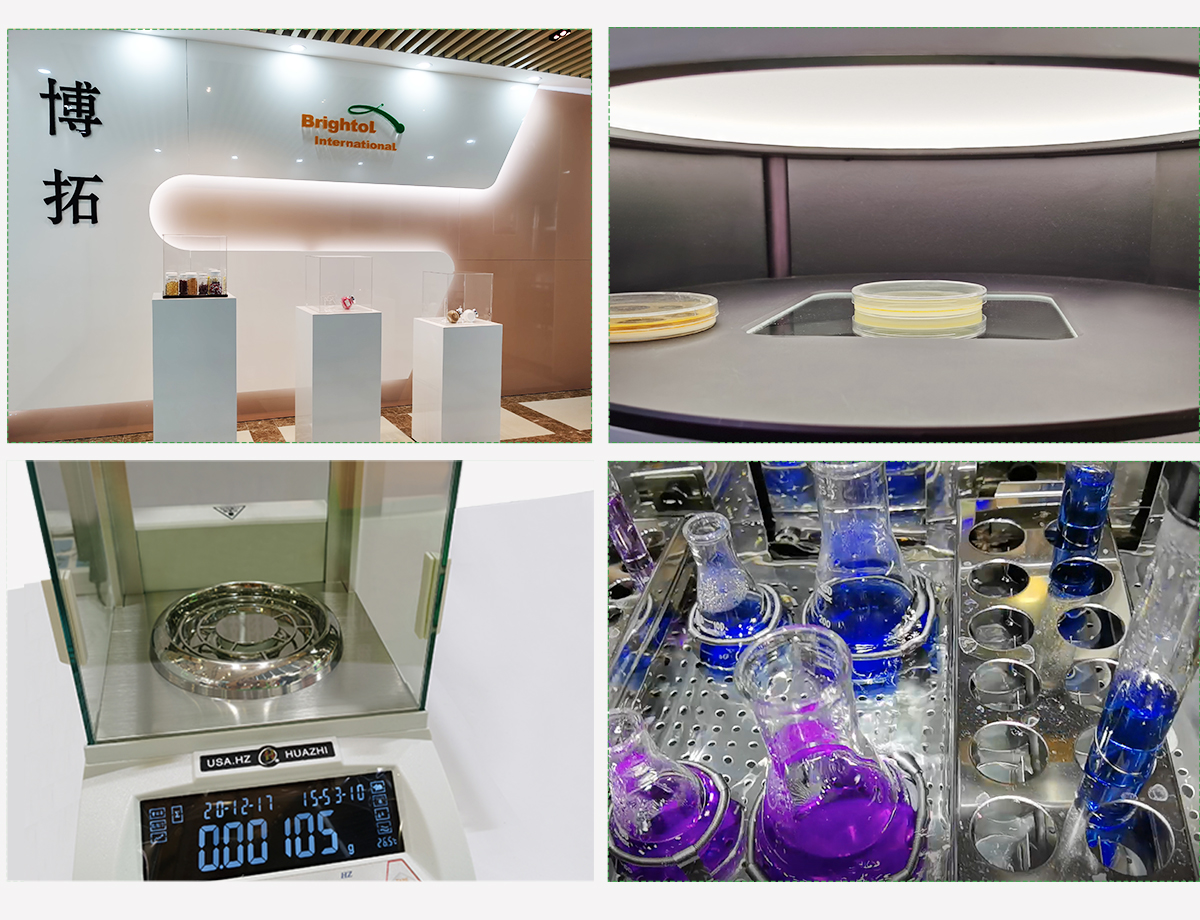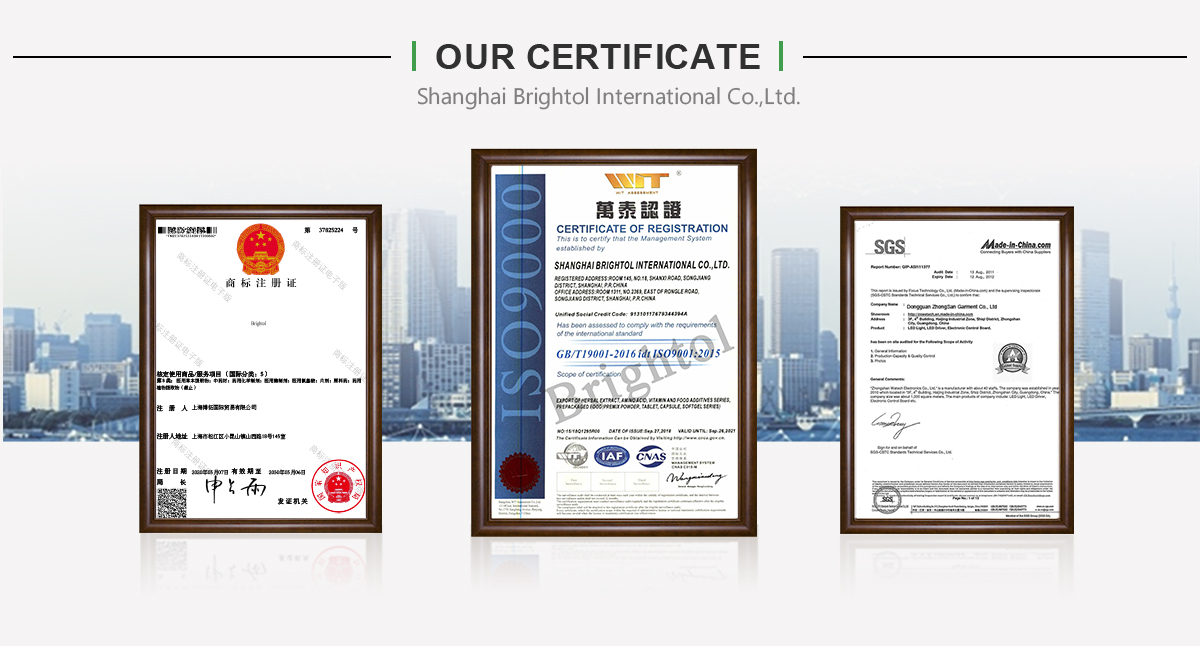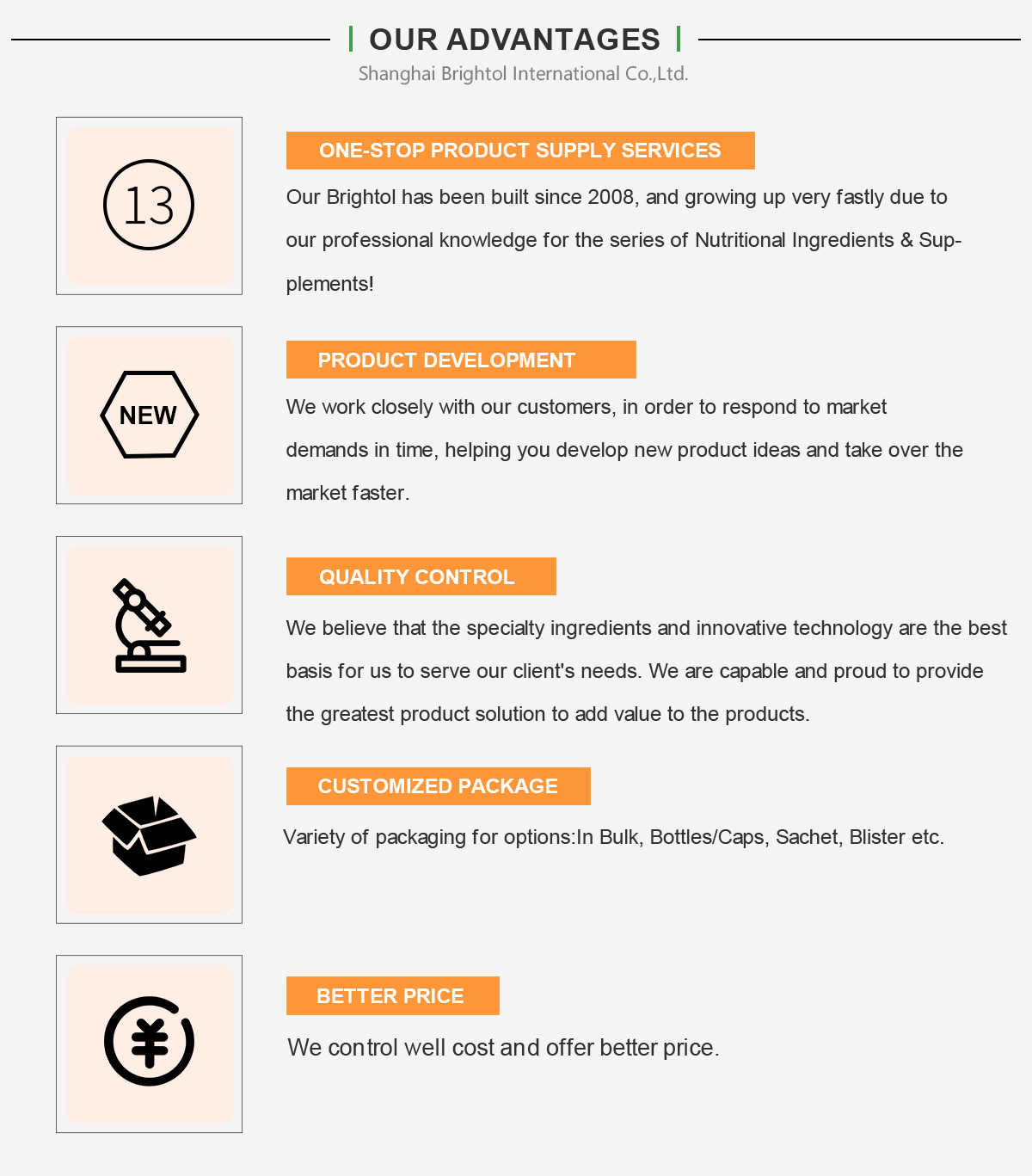

Product name: Perilla Oil powder
Synonyms: Perilla Seed Oil powder
Plant source: Seeds of Perilla frutescens(L.)Var.crispa
Material source: Organic Perilla oil
Active ingredient: alpha-Linolenic Acid (Ω-3)
CAS Number: 463-40-1
Molecular formula: C18H30O2
Molecular weight: 278.43
Description:
Microencapsulated Perilla oil powder contains a beneficial fat, alpha-linoleic acid, which is a heart-healthy Omega-3 fatty acids. Omega-3 fatty acids are beneficial for cardiovascular health, joint, skin, growth and development. Omega-3 fatty acids also helps to improve memory, concentration, energy level and stamina. In addition, it may assist in stabilizing blood pressure, lipids or cholesterol.
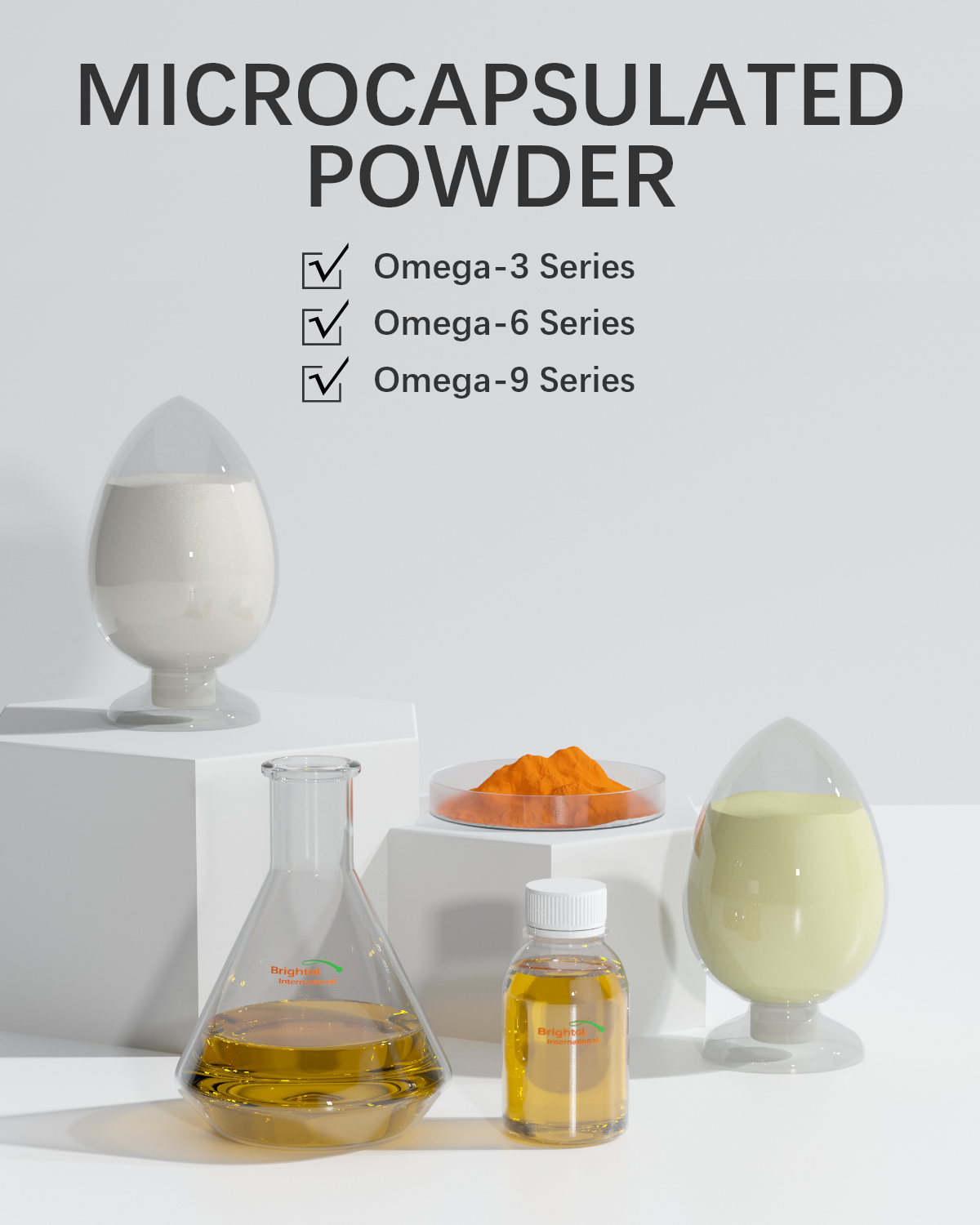

Product name: Perilla Oil powder
Synonyms: Perilla Seed Oil powder
Plant source: Seeds of Perilla frutescens(L.)Var.crispa
Material source: Organic Perilla oil
Active ingredient: alpha-Linolenic Acid (Ω-3)
CAS Number: 463-40-1
Molecular formula: C18H30O2
Molecular weight: 278.43
Description:
Microencapsulated Perilla oil powder contains a beneficial fat, alpha-linoleic acid, which is a heart-healthy Omega-3 fatty acids. Omega-3 fatty acids are beneficial for cardiovascular health, joint, skin, growth and development. Omega-3 fatty acids also helps to improve memory, concentration, energy level and stamina. In addition, it may assist in stabilizing blood pressure, lipids or cholesterol.
Microencapsulated Perilla oil powder is a nutritional supplement or nutritional enhancer, widely used in food, health food, dairy products and beverages applications. Microencapsulated Perilla oil powder has the outstanding use advantages than Perilla oil.
Function
1. Lowering blood lipid
2. Improve memory
3. Anti-aging function
4. Anti-allergic effect
5. Anti-cancer effect
Advantages of Microencapsulated Perilla oil powder VS traditional Perilla oil
1. Protecting an active ingredient during food processing and storage
2. Improved handling of the active ingredient, for example, conversion of liquid in solid
3. Masking off-taste, odor and color
4. Creating textural and flavor effects
5. Control of active ingredient release.
6. More convenient handling during processing
7. Raises the additional values of production, extending the whole supply chain.
8. Increases the complexity of processes and characterization of fortified products.
